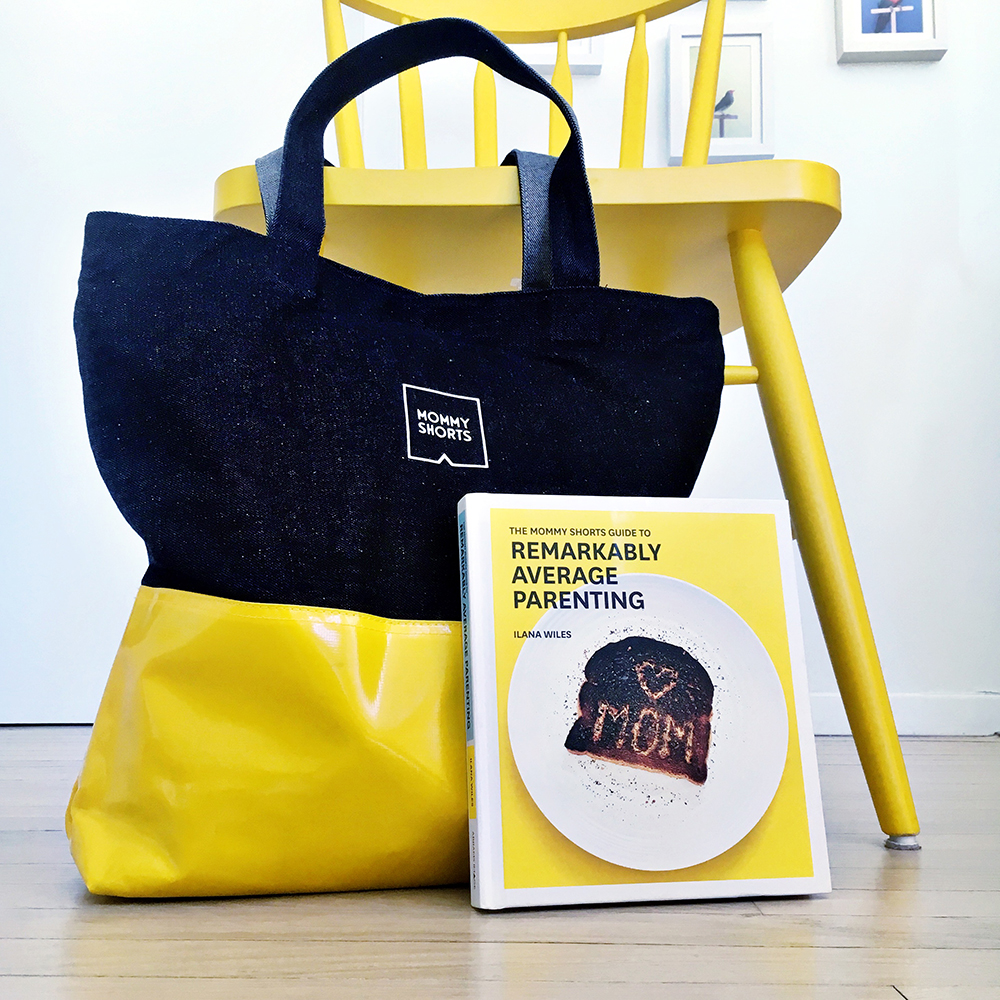
This week, Julianna Miner (aka Rants from Mommyland) published her first book. It’s called Raising a Screen Smart Kid and it’s all about helping our kids navigate the digital world. I got an early copy and found it smart, realistic and actionable. I also loved how the book combined Julianna’s signature humor with tons of facts, research, real life experiences and interviews with parents, educators and kids. As a parent of two kids who are on the precipice of entering into the world of mobile phones and social media, I hung onto every word like my life depended on it.
Today, Julianna is telling us the “5 Things I Wish I Knew Before I Gave My Kid Her First Phone,” to hopefully get us all started on the right path!
————————————
When my oldest daughter got her first phone, I thought I knew what I was doing. As a blogger/social media manager and adjunct professor of Public Health, I felt pretty qualified to tackle this next step, but there were things I didn’t anticipate.
Here are five lessons I learned when my oldest got her first phone:
1) It’s not just happening to your kid.
Your kid will likely get their first phone at about the same time all their friends do. It’s not just that they have to adapt to this new digital environment, it’s that they’re doing it with all their peers at the same time. The entire social landscape will shift overnight and the kids you’ve known and how they interact with each other are going to change, sometimes drastically. I was not prepared for that. When you factor in those kids that get social media accounts as soon as they get their first phone, it magnifies the effect.
It’s like when your teenager gets their driver’s license. Before it happens, you worry about them being safe and responsible on the road. But then you realize it’s actually much bigger than that. It’s that all their friends are new drivers, too. And your kid is getting into a car with them. And sometimes they’re alone in the car, and you start to think about when you were in high school, and then you get a tension headache.
2) Phone contracts are a not a sign it and forget it solution
A lot of people talk about the importance of cell phone contracts and while I think they’re important, they don’t work for everyone. First of all, there isn’t and shouldn’t be a one size fits all set of rules for kids and tech. Every family and every child is different. What worked for my daughter might not work for my son. What worked in September may be a disaster in June. It’s important to approach contracts (and rules in general) with logic and flexibility.
Here are three reasons why contracts or agreements can be great:
- You can create it with your kids, so they feel more invested in its terms.
- Everyone is on the same page and expectations are totally clear.
- When rules get broken, parents can remain neutral while enforcing consequences, minimizing arguing or drama.
Here are three reasons contracts or agreements can be meaningless or ineffective:
- Parents don’t enforce consequences or don’t do so consistently.
- The rules or terms don’t change as needed, or as the child gets older or demonstrates responsibility.
- The rules or terms are impossible for kids to live up to or are too vague/subjective.
By the way, I have a ton of suggestions and ideas on smart phone contracts for kids, including things you can cut and paste to customize one of your own here.
3) Monitoring Apps are not a substitute for mentoring
Monitoring apps can be a valuable tool, but they can sometimes come with an unintended side effect: complacency. It’s really easy to let these apps do the heavy lifting for you. If the app doesn’t flag any problems, then there must not be any – right? That’s not always the case.
Apps aren’t going to identify the more nuanced stuff going on in your kid’s group chats. They’re not going to show you the photo they weren’t tagged in or the Instagram story that made them feel like their friends don’t like them anymore.
I think apps are really useful tools in your digital parenting toolbox, but they’re not a substitute for good communication and paying attention to how your kid is doing and what your kid is doing. Those things are arguably much more important.
When your kid gets their first phone, you should be monitoring them but also mentoring them. This means you’re showing them how everything works and spending time with them as they figure things out. If a monitoring app makes you feel safer, go ahead and use one. Just be careful it doesn’t take the place of being a mentor during those first few critical months.
4) Parental controls don’t mean porn can’t find it’s way to your kid online
This is something that a lot of parents don’t think about, but it’s a really important consideration. If you’re not comfortable discussing porn on the internet with your kid, then either you’re not ready to get them a phone or they’re not ready to have one.
Internet porn will find your child, even if they’re not looking for it. Your kid seeing explicit material online is a when and not an if scenario, even if their phone is locked down. And by the way, locking it down with parental controls is not a substitute for having hard and very necessary conversations. Explain what porn is and what to do if they see it.
How do you explain it? Be as age appropriate and fact-based as possible. Here’s an example of how you could handle the conversation:
“Porn is any image, video, or article showing or describing sexual behavior. The images and videos often show people without their clothes on. Pornography isn’t appropriate for kids to see, because some of it can be disturbing, even for adults. If you accidentally come across it, I promise I won’t be mad but I do need you to tell me about it right away. In some cases, it’s illegal to have certain kinds of porn on a device (like if the image shows someone who is under 18) and it’s important that I know about it right away so I can handle it.
It’s really important that you don’t go looking for porn online, because that’s a common way that bad guys on the internet target kids and teens. If you’re curious about that stuff, we can point you in the direction of some safe and appropriate resources (online) or we can get you some books. It’s totally normal to be curious, by the way, that’s not weird at all. But please don’t google questions about stuff you hear in the locker room or on the bus because it could take you to some dark corners of the internet and we want to avoid that.”
5) To raise a screen smart kid, you have to be a screen smart parent
This was by far the hardest lesson I had to learn and I still have to work on it every day. It means more than just becoming conversant with the apps, games, and social media platforms your kids are using. As someone whose job requires her to check Facebook and Instagram several times a day, I’m on my phone all the time. And that means I had to become a lot more thoughtful about setting a good example for my children.
One way I do that is to discuss with them what I’m doing when I’m on my phone in front of them. I may explain that I’m working, or using it to make plans or grocery lists, and sometimes just to decompress. I’ll mention that I’m leaving it in another room to charge because it’s really distracting me or that I deleted Candy Crush (again) because I was playing it too much. The act of talking them through how and why I was using my phone helped them see I was being intentional in how I used it. And the more intentional I became, the less I used it in front of them.
We already know we should model the behavior we want to see in our kids and that sometimes, that’s hard to do. Our tech use sets the norm for their tech use. If I check my emails at the dinner table, they will check their Instagram. If I look at my phone while I drive, even if I tell them that texting and driving is dangerous, I’m showing them it’s ok.
It’s a universal truth: what we do will always matter more than what we say.
———————————
Please tell me any lessons you learned that you would pass on to parents of younger kids in the comments below!
Julianna Miner is the author of Raising a Screen Smart Kid: Embrace the Good and Avoid the Bad in the Digital Age and the blogger behind Rants from Mommyland. She’s also an adjunct professor of Public Health at George Mason University. Her work has been featured in The Washington Post, Parents Magazine, The Today Show, and many others. She lives in suburban Washington D.C. with her three kids, two smelly dogs, and one husband.
























